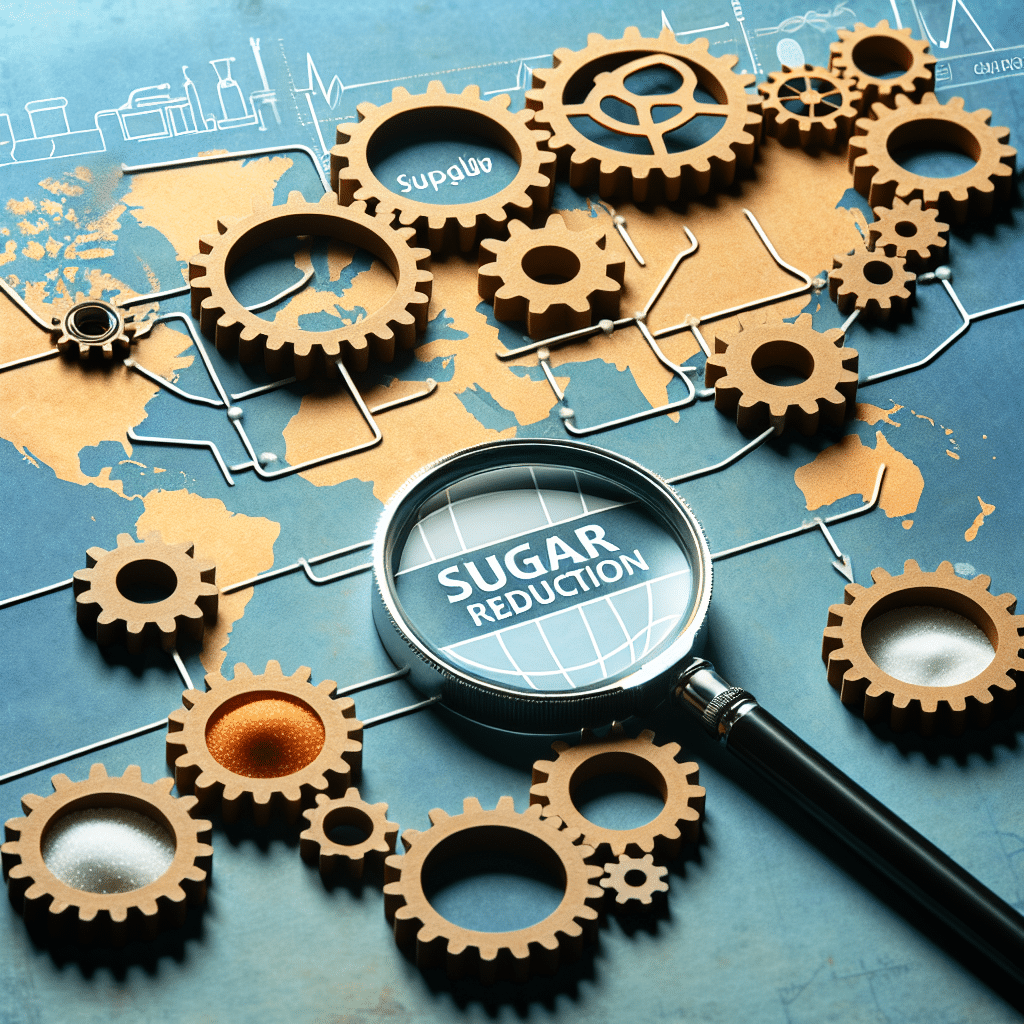How Much Do Supply Chains Support Sugar Reduction? World Health Organization Investigates
-
Table of Contents
- Supply Chains and Sugar Reduction: A WHO Investigation
- The Sugar Crisis and Health Implications
- Supply Chains: The Gatekeepers of Sugar
- Raw Material Sourcing and Agricultural Policies
- Manufacturing and Processing
- Distribution and Retail
- WHO’s Investigation into Supply Chains and Sugar Reduction
- Case Studies and Initiatives
- Statistics and Findings
- Challenges and Barriers
- Strategies for Supply Chain Intervention
- Conclusion: The Path Forward for Sugar Reduction
- ETprotein: Supporting Healthier Choices
Supply Chains and Sugar Reduction: A WHO Investigation

The global health community has long been sounding the alarm on the excessive consumption of sugar and its associated health risks. The World Health Organization (WHO) has been at the forefront of this battle, advocating for reduced sugar intake to combat the rising tide of obesity, diabetes, and other non-communicable diseases. But how much do supply chains support sugar reduction efforts? This article delves into the role of supply chains in facilitating or hindering sugar reduction, as investigated by the WHO.
The Sugar Crisis and Health Implications
Excessive sugar consumption is a major contributor to a host of health issues. The WHO recommends that free sugars should make up less than 10% of total energy intake, with a further reduction to below 5% for additional health benefits. Despite these guidelines, many populations around the world consume far more sugar than is considered healthy, leading to increased rates of obesity, type 2 diabetes, and heart disease.
Supply Chains: The Gatekeepers of Sugar
Supply chains play a critical role in determining the availability and affordability of food products, including those high in sugar. From raw material sourcing to product distribution, each step in the supply chain can influence the sugar content in our diets.
Raw Material Sourcing and Agricultural Policies
At the beginning of the supply chain, agricultural policies and subsidies can affect the production of sugarcane and sugar beets. In some countries, these crops are heavily subsidized, leading to an overproduction of sugar and lower prices, which in turn encourages its inclusion in a wide array of food products.
Manufacturing and Processing
Food manufacturers often add sugar to enhance flavor, extend shelf life, and improve texture. The supply chain’s role in processing and manufacturing can significantly impact the sugar content of food products. Companies may opt for cheaper, more readily available sweeteners, contributing to higher sugar content in processed foods.
Distribution and Retail
Retailers and distributors can influence consumer choices through product placement, pricing strategies, and promotions. Products high in sugar are often more prominently displayed and priced attractively, making them more appealing to consumers.
WHO’s Investigation into Supply Chains and Sugar Reduction
The WHO has recognized the importance of supply chains in addressing the sugar crisis. Their investigation into supply chains seeks to understand how these systems can either support or undermine sugar reduction efforts.
Case Studies and Initiatives
The WHO has looked into various case studies where supply chain interventions have led to reduced sugar consumption. For example, some countries have implemented sugar taxes that increase the cost of sugary drinks, leading to a decrease in their consumption. Other initiatives include reformulation efforts by manufacturers to reduce the sugar content in their products.
Statistics and Findings
Research shows that policy interventions along the supply chain can be effective. For instance, after the introduction of a sugar tax, Mexico saw a 7.6% reduction in sugary drink purchases. The WHO’s findings suggest that when supply chains are aligned with public health goals, significant progress can be made in reducing sugar intake.
Challenges and Barriers
Despite the potential for supply chains to support sugar reduction, there are numerous challenges and barriers. These include:
- Resistance from the food and beverage industry to changing product formulations.
- Economic interests that prioritize profit over public health.
- Consumer demand for sweet-tasting products.
- Lack of awareness or access to healthier alternatives.
Strategies for Supply Chain Intervention
To leverage supply chains in the fight against excessive sugar consumption, several strategies can be employed:
- Encouraging transparency and traceability in supply chains to promote accountability.
- Implementing taxes and subsidies that favor healthier food options.
- Supporting manufacturers in reformulating products to reduce sugar content.
- Working with retailers to promote healthier products through better placement and pricing.
Conclusion: The Path Forward for Sugar Reduction
The WHO’s investigation into supply chains reveals that while there are significant challenges, there are also opportunities to make a positive impact on sugar reduction. By understanding the role of supply chains and implementing targeted interventions, it is possible to shift production, distribution, and consumption patterns towards healthier options. The key takeaway is that a multi-faceted approach involving all stakeholders in the supply chain is essential for reducing sugar consumption and improving public health outcomes.
ETprotein: Supporting Healthier Choices
In line with the WHO’s efforts to promote healthier diets, ETprotein offers a range of protein products that can support consumers in making healthier choices. Their organic bulk vegan proteins are an excellent alternative for those looking to reduce sugar intake and maintain a balanced diet. With a focus on quality and purity, ETprotein’s products are ideal for various industries, including food and beverage, sports nutrition, and health and wellness.
About ETprotein:
ETprotein, a reputable protein and L-(+)-Ergothioneine (EGT) Chinese factory manufacturer and supplier, is renowned for producing, stocking, exporting, and delivering the highest quality organic bulk vegan proteins and L-(+)-Ergothioneine. They include Organic rice protein, clear rice protein, pea protein, clear pea protein, watermelon seed protein, pumpkin seed protein, sunflower seed protein, mung bean protein, peanut protein, and L-(+)-Ergothioneine EGT Pharmaceutical grade, L-(+)-Ergothioneine EGT food grade, L-(+)-Ergothioneine EGT cosmetic grade, L-(+)-Ergothioneine EGT reference grade and L-(+)-Ergothioneine EGT standard. Their offerings, characterized by a neutral taste, non-GMO, allergen-free attributes, with L-(+)-Ergothioneine purity over 98%, 99%, cater to a diverse range of industries. They serve nutraceutical, pharmaceutical, cosmeceutical, veterinary, as well as food and beverage finished product distributors, traders, and manufacturers across Europe, USA, Canada, Australia, Thailand, Japan, Korea, Brazil, and Chile, among others.
ETprotein specialization includes exporting and delivering tailor-made protein powder and finished nutritional supplements. Their extensive product range covers sectors like Food and Beverage, Sports Nutrition, Weight Management, Dietary Supplements, Health and Wellness Products, and Infant Formula, ensuring comprehensive solutions to meet all your protein needs.
As a trusted company by leading global food and beverage brands and Fortune 500 companies, ETprotein reinforces China’s reputation in the global arena. For more information or to sample their products, please contact them and email sales(at)ETprotein.com today.














